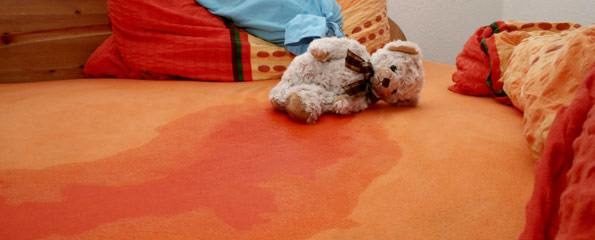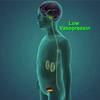Bed wetting (nocturnal enuresis)
Bed wetting
Urinary structure and function
 | The urinary system is divided into upper and lower sections. The function of the urinary system is to remove waste products from the body, regulate water and salt balance, and to store and transport urine. |
For more information, see Urinary Tract.
Bed wetting
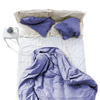 | Bed wetting, or nocturnal enuresis, is defined as intermittent episodes of wetting the bed while asleep in children who are over 5 years of age. |
For more information, see Bed Wetting (Nocturnal Enuresis).
Treating bed wetting
Alarm therapy
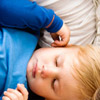 | There are several options available for treatment of bed wetting. The use of a bed wetting alarm is generally the first step for families who are motivated and have time to dedicate to using an alarm. |
For more information, see Alarm for bed wetting.
Desmopressin therapy
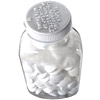 | Desmopressin is generally considered to be the next step for children who have not responded to alarm therapy, who are not likely to comply with alarm therapy or where a rapid result is required. |
Videos
Causes of bedwetting
Causes of bedwetting- difficulty rousing from sleep
Causes of bedwetting- overactive or twitchy bladder
Causes of bedwetting- overproduction of urine
Bed wetting treatments
Tools
My dryness tracker
 | A free app for individuals being treated for bedwetting (nocturnal enuresis), or who plan to see a doctor about the condition. Features a bedwetting checklist, day-time and night-time voiding diaries, alarm therapy progress tracker, desmopressin progress tracker (restricted access), WetAlert® enuresis alarm ordering facility and treatment progress reports. Available from the App Store and Google play for use on smartphone and tablet. |
Living with bed wetting
Toilet training (potty training)
 | Toilet training is an important developmental milestone and can be a challenging step for both parents and toddlers. A child is considered fully toilet trained when they are conscious of the fact that they need to pass urine or open their bowels and can take themselves to the toilet without reminders from their parents. |
For more information, see Toilet Training (Potty Training).
Preventing bed wetting
 | The exact mechanism behind bed wetting is poorly understood making prevention of this disorder difficult to study. Bed wetting is a complex phenomenon that results from the interaction of several factors which may include underlying medical conditions, genetics, developmental and psychosocial factors. |
For more information, see Preventing Bed Wetting.
The impact of bed wetting
 | Bed wetting carries a significant burden for both the affected child and their family. Children who wet their bed have lower self-esteem, restrictions on social activities and are at risk of physical and emotional abuse. Adult bed wetters have higher rates of depression, lower self-esteem and the condition has a significant impact on education and career choices. |
For more information, see Impact of Bed Wetting.
Stephen recalls his bed wetting days
 | Bed wetting is very treatable and there is help at hand. We spoke to Stephen about his experience growing up with bed wetting and how he eventually managed to overcome it. |
For more information, see Nocturnal Enuresis: Stephen recalls his bed wetting days.
Dates
Tags
Created by:

 Login
Login